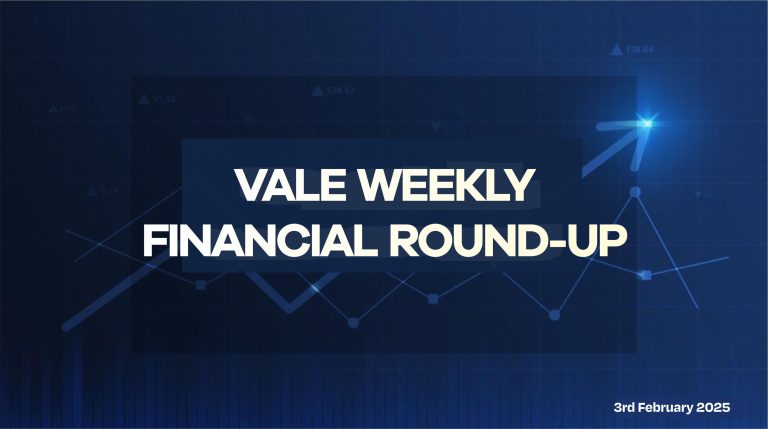Financial Boundaries: A Smart Way to Take Control of Your Money
So much of our lives are built around money, but without personal limits, it can slip away faster than we realize. That’s why financial boundaries matter. They aren’t complicated rules; they’re simple, intentional decisions about what we’ll spend on, what we’ll save, and where we draw the line.
Money slips through our fingers when we don’t tell it where to go. We pay bills, make small purchases, help friends and family, and before we know it, there’s nothing left. Financial boundaries help you take back control and decide how your money is used.
If you don’t set limits, your money will always meet everyone else’s needs before your own. Boundaries aren’t about being selfish or cold. They are about protecting your well-being first, so when you choose to give, it’s coming from a place of stability.
When there are no boundaries, money moves without direction. Every outing and every “treat-yourself” moment feels necessary. But not every expense is worth it. Boundaries help you pause and think. Like traffic lights, they guide your choices and keep you on track.
They also help you stay focused on your priorities. You don’t have to attend every party or buy every trending item just to fit in. Social pressure can quickly throw your finances off course. Saying “I can’t spend on this right now” is not weakness. It’s a sign of self-discipline.
Another key boundary is learning to stop being everyone’s emergency fund. It’s okay to support people when you can, but not at the cost of your own stability. Generosity should not leave you struggling. Set a limit that lets you give wisely without draining yourself.
Financial boundaries protect your mental health too. Overspending or giving beyond your means creates stress and guilt. You might avoid account alerts, worry about bills, or feel overwhelmed. But when you have limits on spending, lending, and unnecessary commitments, you give yourself peace of mind.
One of the most powerful boundaries is paying yourself first. Before any bill or request, set aside money for savings or investment. Just like putting on your oxygen mask first, this habit ensures you are not running on empty while trying to help others.
Silence can also be a smart boundary. Not everyone needs to know how much you earn or what your financial plans are. Oversharing invites opinions, pressure, and comparison. Keeping your finances private isn’t secrecy. It’s a way to stay focused and avoid distractions.
In the end, financial boundaries bring freedom. They free you from impulsive spending and people’s expectations. They help you use money to build a life that feels secure, balanced, and truly your own.
NOW TO THE NEWS
Exchange Rate Gap Narrows to N1, Reserves Climb to $37.78 Billion
The naira has maintained a streak of relative stability, with the gap between the official and parallel markets narrowing to just N1. As of Friday, the currency traded at N1,535/$1 in the parallel market, only slightly lower than the N1,536/$1 recorded at the official window. This marks a 0.33% appreciation from Thursday’s N1,540/$1 in the parallel market, while official data from the Central Bank of Nigeria (CBN) shows the naira depreciated slightly from N1,531/$1 on Wednesday to N1,536/$1 on Thursday. Intra-day trading on Thursday saw fluctuations between N1,520/$1 and N1,538/$1.
Meanwhile, Nigeria’s foreign exchange reserves have risen to $37.78 billion, up from $37.6 billion — a 0.37% increase. This growth reflects higher dollar inflows from oil exports, diaspora remittances, and renewed investor confidence, which have been bolstered by ongoing monetary and fiscal reforms. The increase in reserves is a positive indicator for the country’s economic outlook.
Analysts believe the strengthening of reserves enhances the CBN’s capacity to stabilize the naira, finance imports, and meet external obligations. The combination of a more stable exchange rate and improved reserves signals progress in the government’s efforts to restore market confidence and attract foreign investments.
SEC to Launch USSD Code to Tackle Ponzi Schemes and Verify Capital Market Operators
The Securities and Exchange Commission (SEC) has announced plans to introduce a USSD code that will allow Nigerians to verify the authenticity of capital market operators without an internet connection.
According to SEC Director-General Emomotimi Agama, the code will be launched at the next Capital Market Committee meeting this quarter. The initiative aims to curb the activities of unregistered investment operators and protect the public from Ponzi schemes.
Agama emphasized that registration with the Corporate Affairs Commission does not qualify any entity to operate as an investment company, stressing that only SEC-registered firms are legally recognized. He further highlighted the new Investment and Securities Act 2025, which imposes stricter penalties on Ponzi scheme promoters, including fines ranging from N20 million to N1 billion and up to 10 Years imprisonment. The SEC also now has the authority to take action against social media influencers who promote such schemes.
In addition to the USSD initiative, the SEC is partnering with educational and government institutions to promote financial literacy and legitimate investment avenues. The Commission continues to urge Nigerians to verify any investment offers through its official channels and remains committed to safeguarding investors and ensuring confidence in the capital market.
Naira to Appreciate to N1,450/$1 as Economy Strengthens – Sagagi
The naira is projected to appreciate to N1,450 per US dollar by December 2025, strengthening from its current rate of N1,535.50/$1. This is according to Murtala Sagagi, a member of the Central Bank of Nigeria (CBN) Monetary Policy Committee (MPC), who shared his outlook in a personal statement following the 300th MPC meeting published on CBN website.
Sagagi noted that the naira, while currently undervalued, has remained relatively stable and is expected to benefit from improved fiscal and monetary conditions. He highlighted positive economic assessments from international rating agencies such as JP Morgan and Fitch Ratings, which have reinforced investor confidence and supported expectations for stronger currency performance.
However, he stressed the importance of complementary fiscal policy measures to ensure that gains from inflation control translate into tangible economic growth and job creation. He emphasized the need for coordinated monetary and fiscal actions to shield the economy from shocks and lay the groundwork for sustainable, inclusive growth.
Nigeria’s inflation eases to 22% in June 2025
According to the National Bureau of Statistics (NBS) report, Nigeria’s headline inflation rate eased for the third consecutive month, dropping to 22.22% in June 2025 from 22.97% in May. This marks the lowest inflation figure of the year, down sharply from 34.19% recorded in June 2024. The decline is largely attributed to the high base-year effect and recent macroeconomic stability.
Food inflation, however, remains a major concern despite easing annually to 21.97% from 40.87% a year earlier. On a month-on-month basis, food inflation rose to 3.25% in June from 2.19% in May, driven by price increases in staples such as tomatoes, pepper, meat, and seafood. Core inflation also declined year-on-year to 22.76% but rose month-on-month to 2.46%, reflecting persistent price pressures.
The NBS report also showed that despite the annual slowdown, cost-of-living pressures remain high due to rising monthly inflation. Urban inflation stood at 22.72% year-on-year, while rural inflation was 20.85%. Also, the State-level data showed Borno, Abuja, and Benue recorded the highest inflation rates, while Zamfara, Yobe, and Sokoto posted the lowest.
Afrinvest analysts, who accurately projected the June figures, attributed the easing inflation to the strengthening of the naira, which gained 3.6% in June, and the high base effect from 2024 figures but caution that food supply disruptions, insecurity, and external risks could limit further disinflation.


